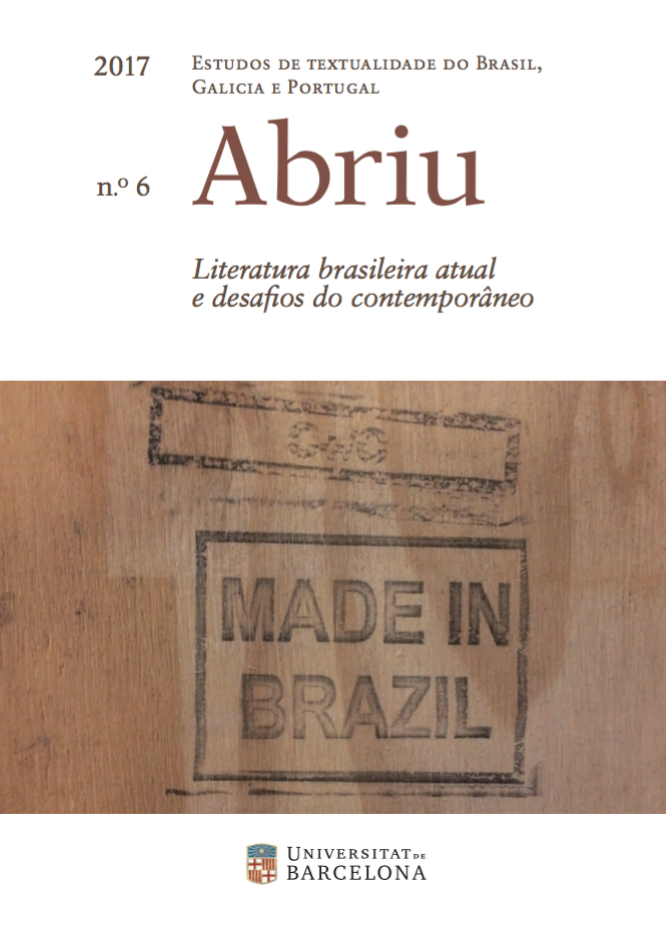Minimalism and sociability in crisis: masks of alterity in the works of Marcelino Freire and André Sant’Anna
DOI:
https://doi.org/10.1344/abriu2017.6.3Keywords:
minimalism, performance, contemporary Brazilian literature, sociability, subjectivityAbstract
Brazilian literature, when dedicated to recreating contemporary social fractures, has frequently chosen a minimalist perspective in order to counteract the representationalist lineage overly expressed in our tradition. Nowadays, there two writers operating in the minimalist scene and elaborating on the disjunctions of a problematic sociability of a rather impersonal diction in favor of a stylized theater of alterity: André Sant’Anna and Marcelino Freire. The latter, in his modulated short-stories, adopts the rhythms and the assonances of a reduced vocabulary to give form to the situation of marginal characters and, in so doing, he is capable of making them sing. André Sant’Anna, for his part, works through dissonance and seeks to disarrange language by adopting a coordinated syntax, full of repetitions and recurrences. His style causes the tedious effect that underlies the grotesque comicality of certain dictions. Consequently, the examined short-stories, although they offer differences in their conception, practice the rituals of performance, due to their respective efforts to influence reception, as they include elements of reality and equally try to produce literature open to an ethical commitment to life.Downloads
Published
2017-06-15
How to Cite
Dias, Ângela M. (2017). Minimalism and sociability in crisis: masks of alterity in the works of Marcelino Freire and André Sant’Anna. Abriu: Estudos De Textualidade Do Brasil, Galicia E Portugal, (6), 51–64. https://doi.org/10.1344/abriu2017.6.3
Issue
Section
MONOGRAPH



